“It’s time that we start looking at pain in a different way”: Dr Suzette Hattingh on the role of the Peninnahs in our lives
by Janice Tai // September 21, 2023, 4:46 pm
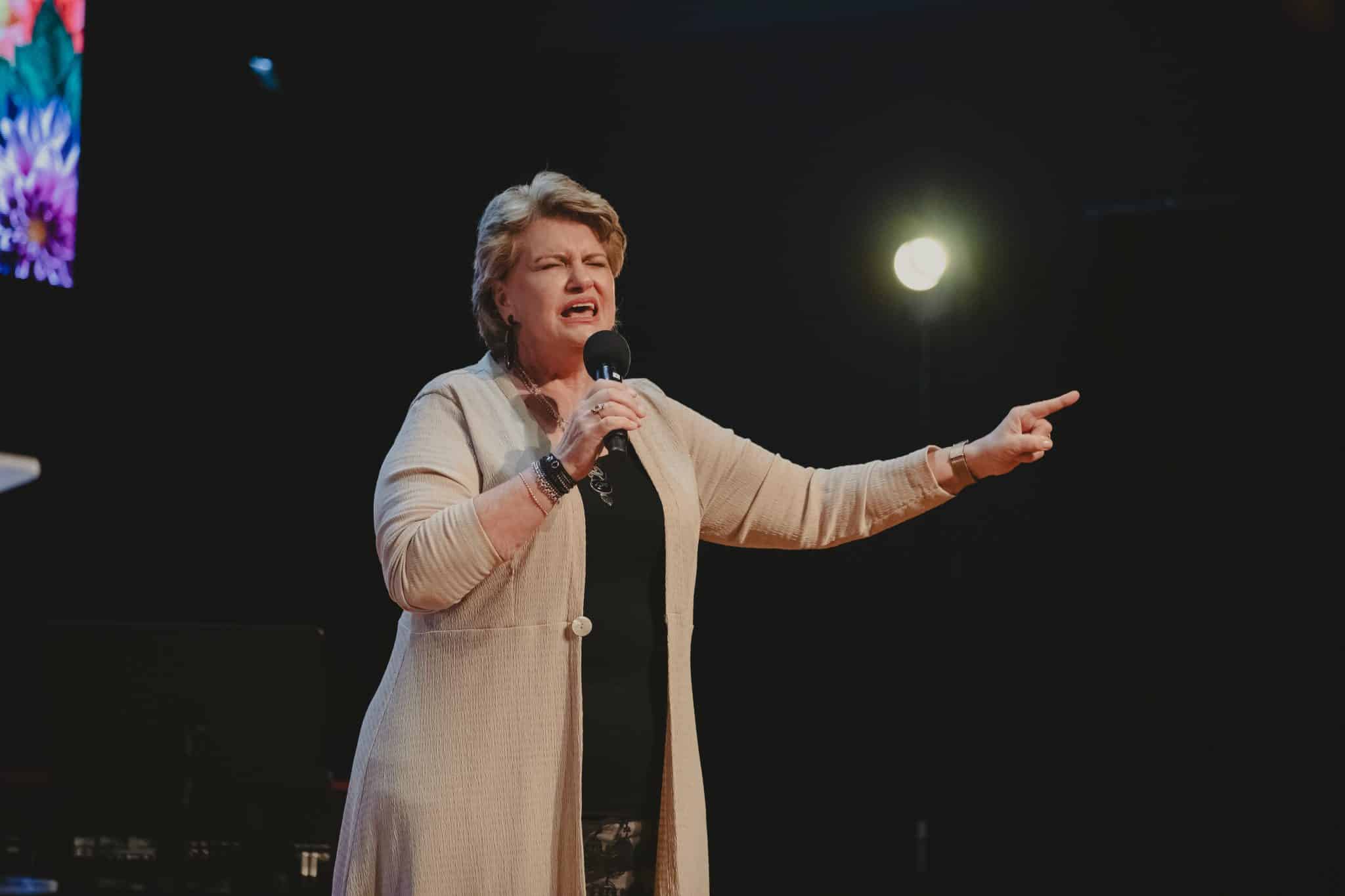
“When we experience pain in our lives, let us start turning it around and say, 'You will not only not destroy me, but I will reap a hundredfold from you'," declared Dr Hattingh at WOW! Conference 2023. All photos from Cornerstone Community Church.
Evangelist Dr Suzette Hattingh was diagnosed with a bone disease in 2008. Her doctors in Germany scheduled surgery to cut a little piece of bone out of her right leg and straighten the leg.
When she woke up from the operation, however, she found a massive cut on the upper part of her leg. Furthermore, she was told her peroneal nerve was 80 per cent damaged.
“I had screws in. I had bolts in,” Dr Hattingh described. “It threw me for 18 months into a wheelchair.
“I could grill the doctor on an open fire with a smile without repentance!” she admitted candidly to the WOW! conference audience of some 1,000 women, who had gathered from across 16 countries at Cornerstone Community Church for the three-day event.
The September conference, which was birthed from a passion to see women arise and fulfil their Kingdom identity, role and purpose, also included Pastor Bonnie Chavda, missionary Heidi Baker and Rev Dr Naomi Dowdy in the lineup of speakers.
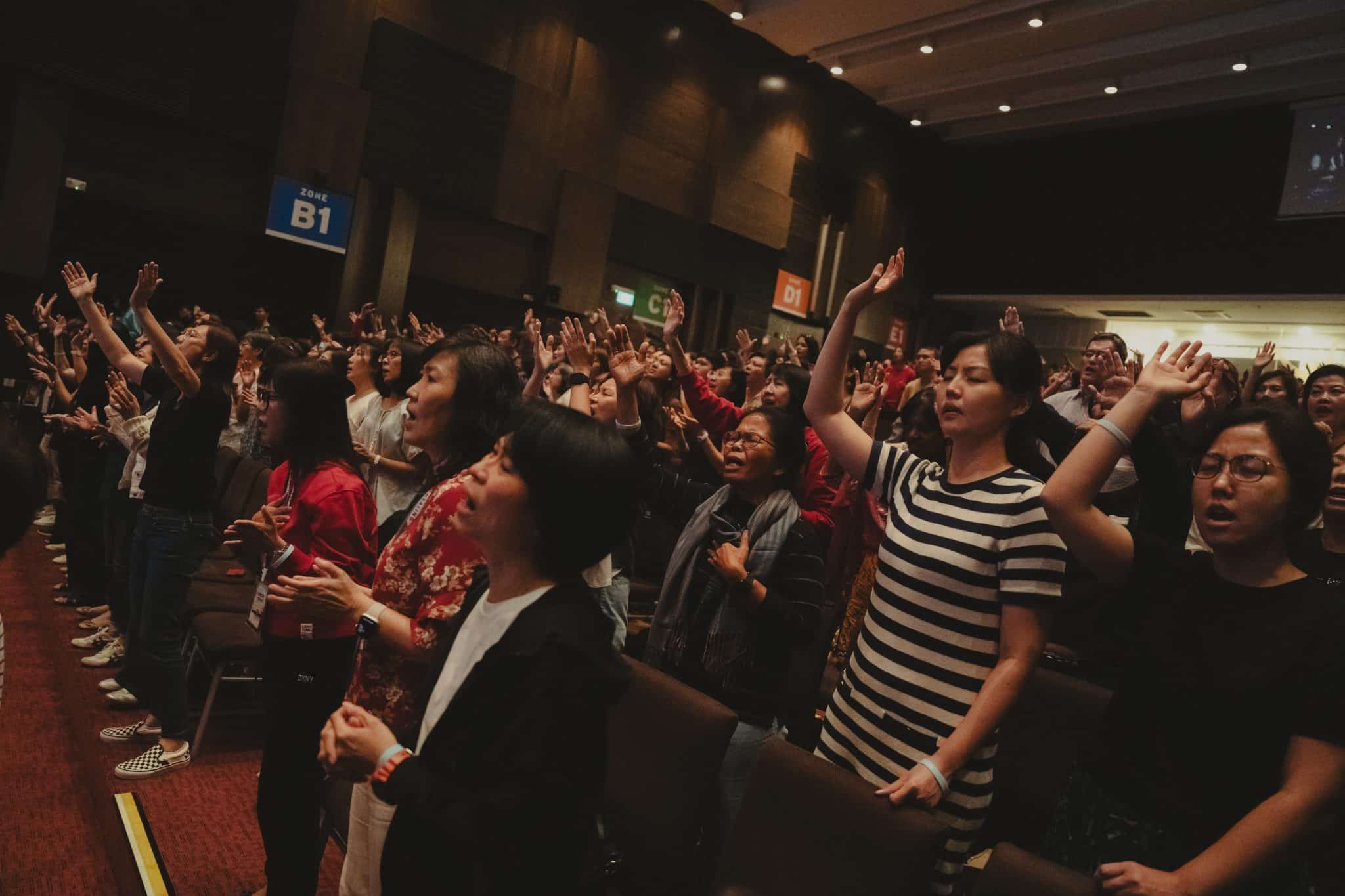
For Kingdom’s purpose: Some 1,000 women from 125 churches across 16 countries gathered at Cornerstone Community Church for the WOW! conference.
“I could not do anything and I was in the most severe pain that anybody could imagine, given the nerve damage.”
Dr Hattingh was used to being on her feet. As part of evangelist Reinhard Bonnke’s “Christ for all Nations” (CfaN) ministry from 1980 to 1996, she had headed CfaN’s intercessory department and eventually became associate evangelist. She later went on to start her own missions organisation based in Germany, as well as a non-profit organisation in Papua, Indonesia.
“I was in the most severe pain that anybody could imagine.”
The botched surgery “stopped me dead from having these crusades and running all over the world and doing all these prayer schools”, she said.
“We don’t know what happened, but we suspected that the professor came late and his assistant started to operate and made a mistake.”
She wanted to take the doctor to court.
And she was not alone: “Another professor said, ‘Let’s go, because that man had ruined my legs and ruined my future. I went from one operation to the next operation and by the third operation, they said if this does not work, we have to amputate your leg’ – because of the mistake of a doctor.”
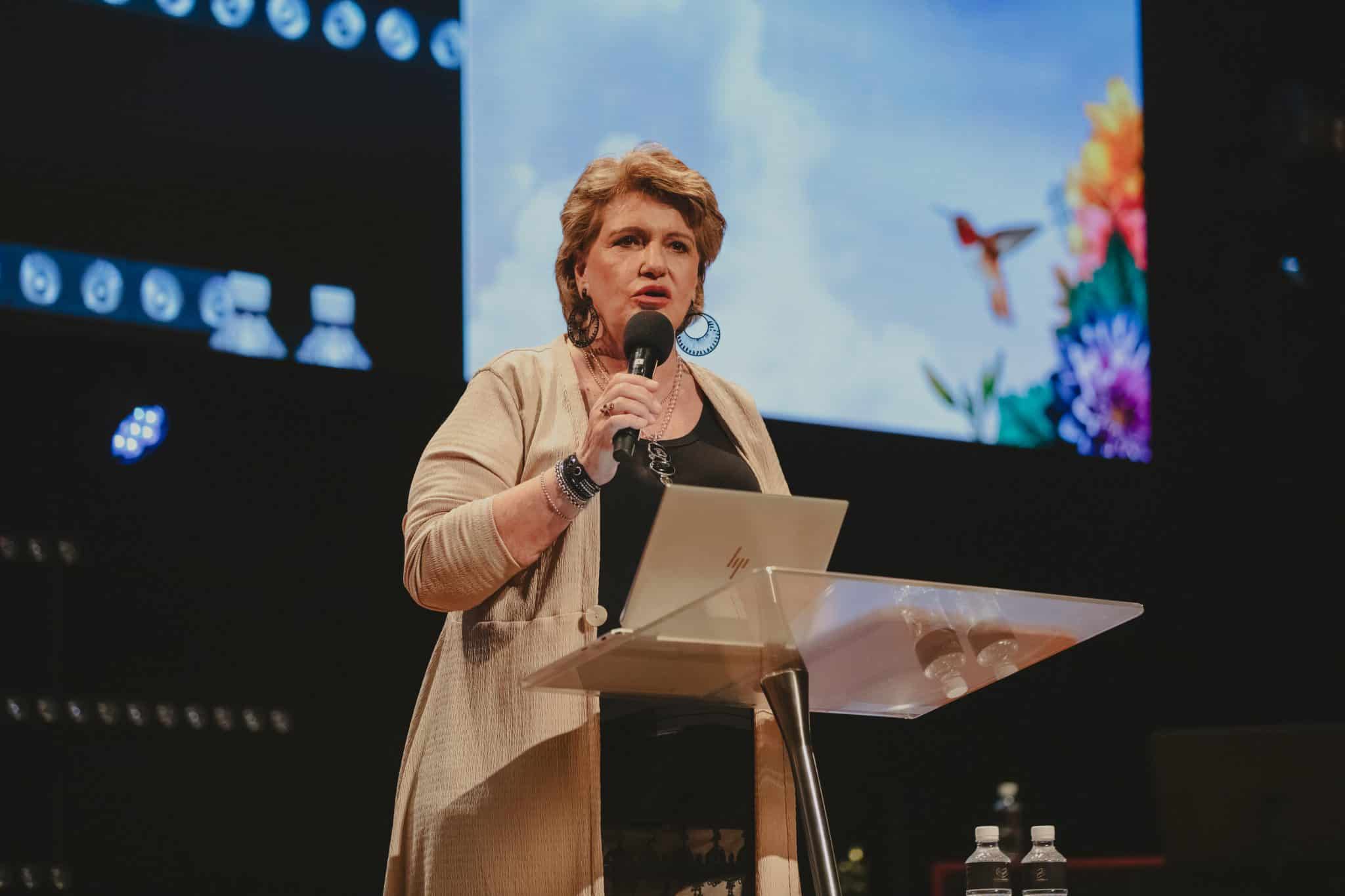
The power of God to heal: Bouncing back from the botched leg and thyroid operations, Dr Hattingh stood, and spoke, of the transformative role of suffering in her life.
That Christ be formed in us
But, with her characteristic sardonic humour, she went on to say: “I should have gone to court before I prayed!” – because, when she prayed, God told her not to pursue her case, and to learn to forgive the surgeon instead.
“Why? Because Christ was being formed in me,” said Dr Hattingh. (Galatians 4:19)
“I’ve learned that the state of my leg changed, not my calling.”
“Every time people had to carry me in and carry me out, I had to forgive him. Every time I had to get into the shower and I couldn’t do it by myself, I had to forgive him again.
“Every time I couldn’t drive my own car, I had to forgive him again. Every time I couldn’t travel or every time I was in so much pain at night, I had to forgive him again.”
Her frustration was intense. Once, she even complained to God after an incident when the woman who was driving her car – a Volkswagen Passat with six gears – used only the first and second gears for the whole journey.
The Lord chided: “You see how impatient you are? You see how unthankful you are for people that helped you?”
Dr Hattingh repented immediately.
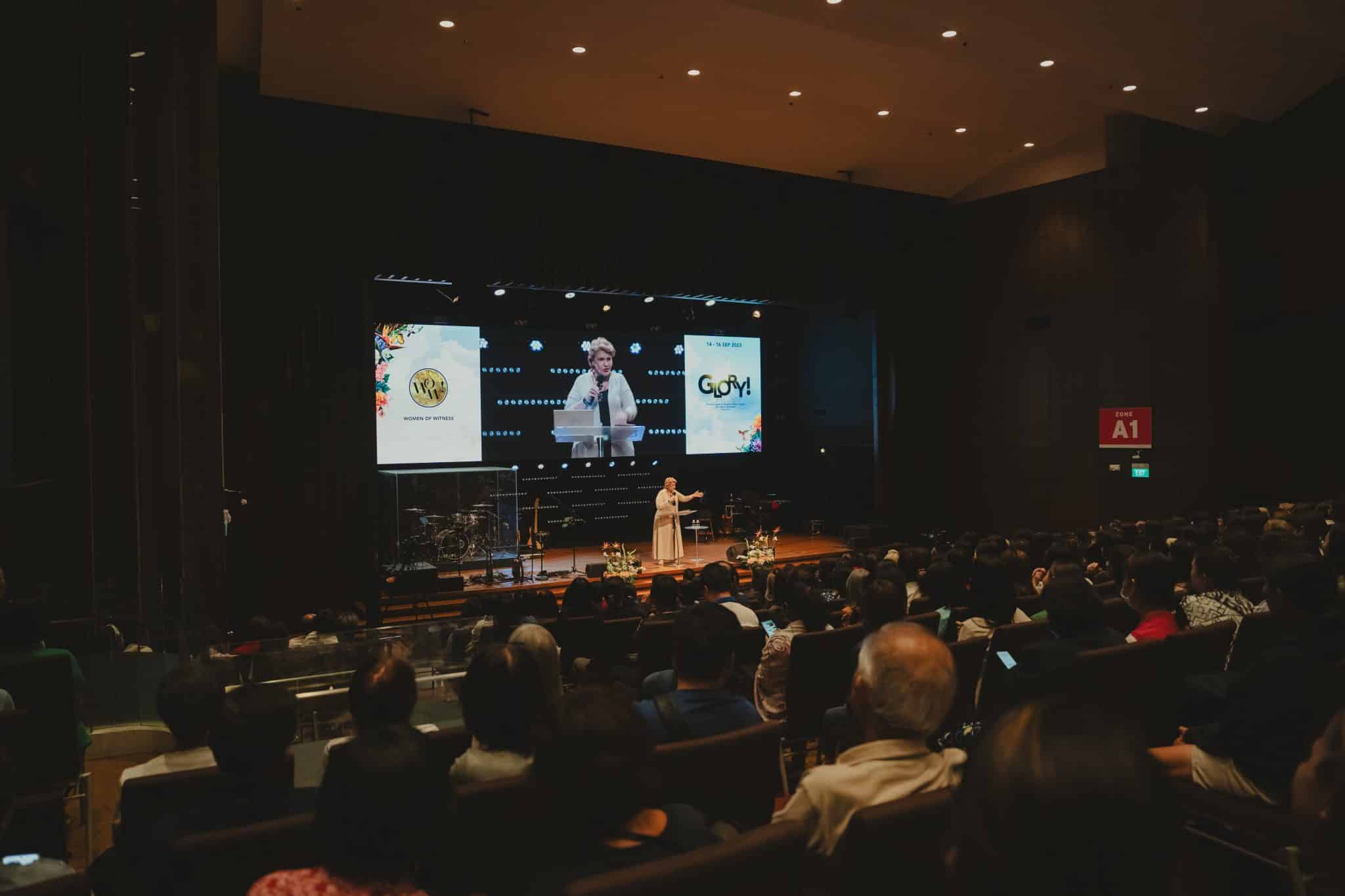
Sent forth despite setbacks: One physically limiting ordeal, then another, led to one miracle, then another for Dr Hattingh.
Seven months after the operation, Dr Hattingh made the decision to resume travelling. She brought her wheelchair all over the world and spoke again at large-scale crusades.
Seated in her wheelchair, “I saw great numbers of people receiving salvation”, she said. “I’ve learned that the state of my leg changed, not my calling.”
After 18 months, God healed her leg miraculously. “The ordeal formed in me the Christ in me – the hope of glory.
“That’s the glory of Christ.”
A different attitude
Through this episode, God changed her attitude towards pain and showed her that the “Peninnah” (1 Samuel 1:2) in her life could and did play an instructive role.
In 1 Samuel 1, it is written that Elkanah had two wives, Peninnah and Hannah.
Peninnah had children, but Hannah did not. Year after year, Elkanah went up from his town to worship and sacrifice to the Lord Almighty at Shiloh.
“Sometimes, God puts a Peninnah in our lives to bring us into new dimensions.”
Whenever the day came, he would give portions to Peninnah and her children but, unusually, to Hannah he would give a double portion, because he loved her, and the Lord had closed her womb.
At the time, it was customary for only the wife who birthed a son as a firstborn to be given a double portion.
Dr Hattingh said: “To Elkanah, it didn’t matter that she didn’t have children; he blessed her as if she had.” But to Hannah, “it was the greatest shame not to be able to bear children”.
Peninnah would provoke the barren Hannah to irritate her. Hannah would, in turn, be reduced to tears and refuse to eat.
Noting that the word Peninnah means “pearl of precious stone”, Dr Hattingh observed that a pearl is formed from the irritation caused by a grain of sand caught inside the soft membranes of an oyster.
“It is that irritation, that continuous provoking within the inner part of an oyster that brings forth the beautiful pearl.
“She did not come from the devil. It wasn’t planned by the enemy. It was perfectly set up by God.
“Why? Hannah only wanted a son, but God wanted a prophet. Hannah only wanted a son to take away her shame, but God wanted a prophet that would guide His nation and whose word would not fall to the ground.”
Contending that God had put Peninnah in place to provoke Hannah to contend for more, Dr Hattingh urged her listeners to form a different attitude towards pain.
“We take pain as a disaster. We take pain as something in our lives that is destroying us, that is out to bring us down.
“But God already promised us that no weapon forged against us will prosper (Isaiah 54:17), that we may be hard-pressed but we won’t be destroyed (2 Corinthians 4:8), and He promised to be our shield and protection,” she said.
God’s greater purpose
“I think it’s time that we start looking at pain in a different way. Perhaps God put the Peninnah there to actually provoke you one more time and get you desperate and determined (to contend for the promises of God in your lives) instead of hiding behind the comfort of Elkanah.”
“Hannah only wanted a son to take away her shame, but God wanted a prophet that would guide His nation.”
If Hannah was content with just receiving the love and approval of Elkanah, she would not have kept on praying to God and eventually give birth to the great prophet Samuel, who anointed the first two kings of Israel.
“When we experience pain in our lives, let us start turning it around and say, ‘You will not only not destroy me, but I will reap a hundredfold from you’,” encouraged Dr Hattingh.
“Let us use our Peninnahs to form Christ in us so that we will go into new dimensions because of our Peninnahs.”
Citing Isaiah 43:2-3, she continued: “He did not say you will not go through the floods nor the fire but He said they will not harm you because they have no permission to destroy you.”
She also turned to the example of Jabez, whose name means “pain” because his mother gave birth to him in pain: He boldly cried out to God to “enlarge (his) territory”. (1 Chronicles 4:10)
“I see a man that uses pain for enlargement,” she noted.
Unbowed by pain
In 2016, Dr Hattingh went for another operation, this time for her thyroid. Though she was speaking well before going under anaesthesia, she woke up without a voice.
“I told him not to worry, I will speak again.”
“The doctor said, ‘You have a 50 per cent chance to never talk again. We are so sorry. During the operation, we touched your right vocal cord with electricity. We have to perhaps put a little microphone here in your throat so that you at least can have some form of speech’,” she shared.
Being a preacher, the notion of not being able to speak was inconceivable. However, she looked at the doctor and remembered the lessons from the previous surgery.
“I remembered what it was like in 2008 and I said, ‘I know this Peninnah … I know what to do.’ I was never angry with that doctor. I said, ‘I forgive you.’ Though he looked at me with big eyes and said I might never talk again, I told him not to worry, I will speak again.”
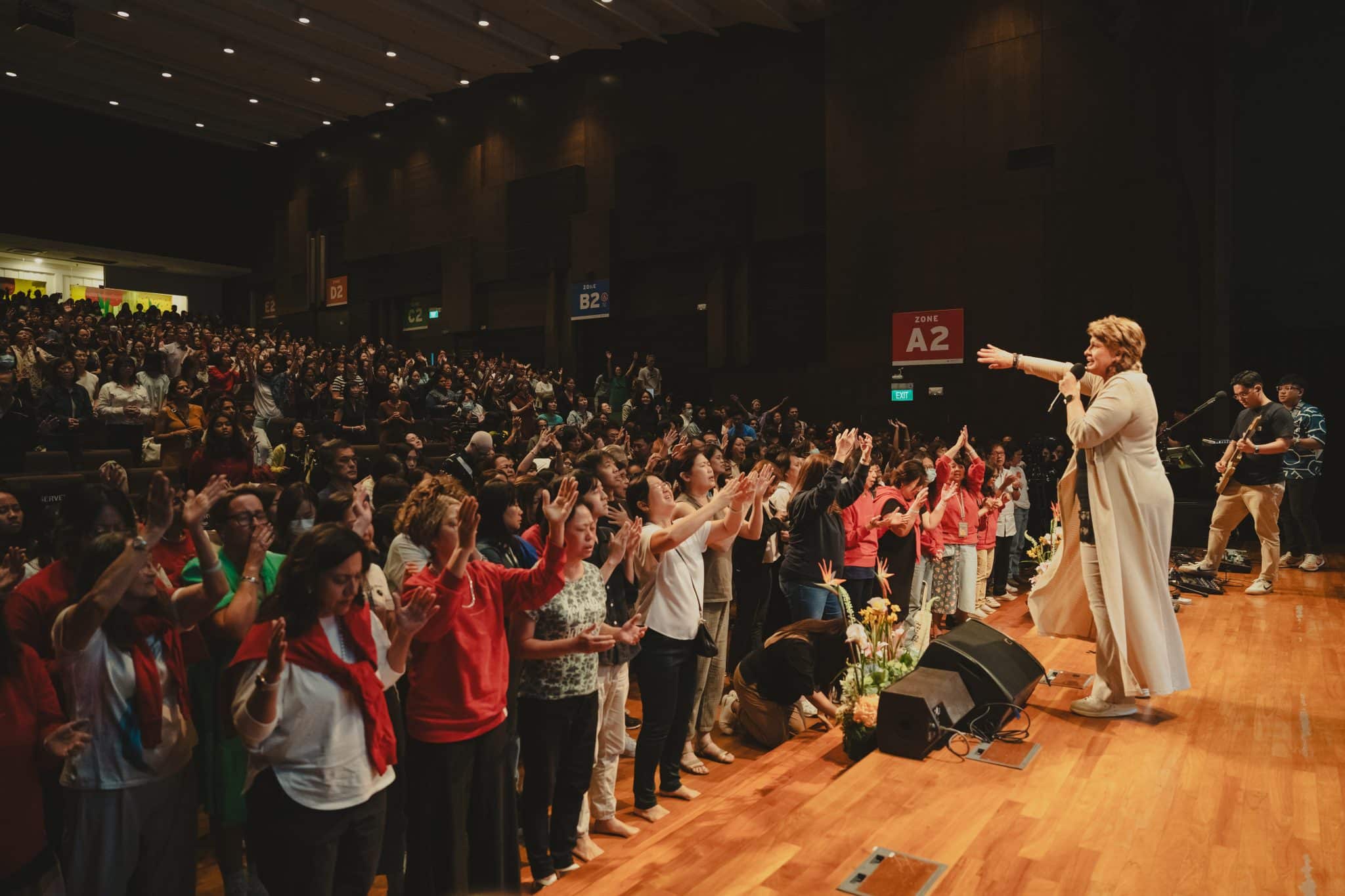
“I realised God wanted to do something”: In sharing her testimony, Dr Hattingh’s exhortation to her audience was, “It’s time that we start looking at pain in a different way.”
Dr Hattingh had learnt that God is more interested in her enlargement and in turning her barren areas into glory for His Name than He is interested in her sermons as a preacher.
“I learnt how to handle pain. It could not destroy me.
She decided to humble herself before God and sleep on the floor every night, just as David did in interceding for the life of Bathsheba’s son. (2 Samuel 12:16)
“I said, God, I’m not going to ask You to heal me or do something for my voice. I’m not going to ask You to do anything. I’m simply going to humble myself before You.”
After the eighth day, she woke up and contacted the doctor. With confidence, she told him: “I will speak again.”
“I learnt to handle Peninnah. I learnt how to handle pain. It could not destroy me. It’s no right to do so. But I also realised that God wanted to do something,” she declared.
Birthing a Samuel
She realised that her “Peninnah” had birthed a “Samuel”.
“It taught me how to pray into the spirit realm, even though I could not utter one word. It taught me how to take authority and move in the spirit realm as our spirits communicate with the Spirit.
“It taught me how to take authority and move in the spirit realm.”
“It taught me how to listen because I couldn’t speak anyhow, and that’s a good lesson for me since I have such a big mouth,” she said.
“It developed a maturity in me in the place of prayer. I saw that when I commune with God, it had nothing to do with voice, nothing to do with noise, nothing to do with how loud or how quiet I am and it had nothing to do how long I lie on my face before God. It’s spirit to Spirit.”
A few weeks later, Dr Hattingh miraculously started talking again. Till today, she preaches with a commandeering presence on global stages using just one vocal cord.
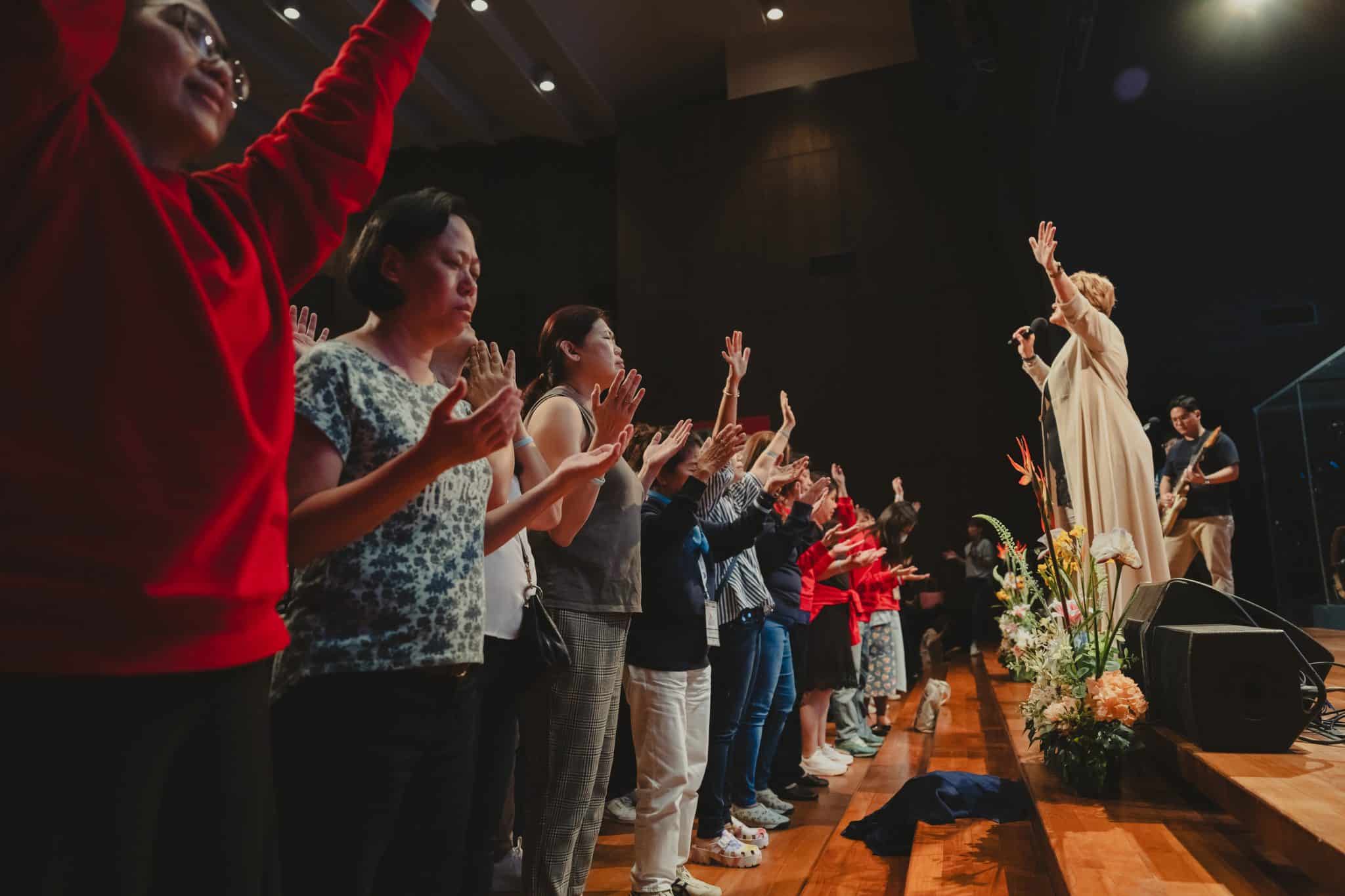
“You are on your way to a door of hope,” said Dr Hattingh to those who responded to God at the altar call.
She urged believers to take their “Valley of Achor” and turn it into a “door of hope”. (Hosea 2:15)
“The Valley of Achor is a place that – even now – is in Israel. It means travel, affliction, disturbance. So God says, ‘I will take that valley that has been to you your pain and I will turn it into a vineyard that brings forth fruit.’
“You will not stay the way you are. You will not stay where you are. You are on your way to a door of hope – a door of new dimensions, new ministries and areas, new power and new miracles.”
RELATED STORIES:
The 2-minute prayer that can transform your family: Suzette Hattingh at Momentum 2018
We are an independent, non-profit organisation that relies on the generosity of our readers, such as yourself, to continue serving the kingdom. Every dollar donated goes directly back into our editorial coverage.
Would you consider partnering with us in our kingdom work by supporting us financially, either as a one-off donation, or a recurring pledge?
Support Salt&Light


